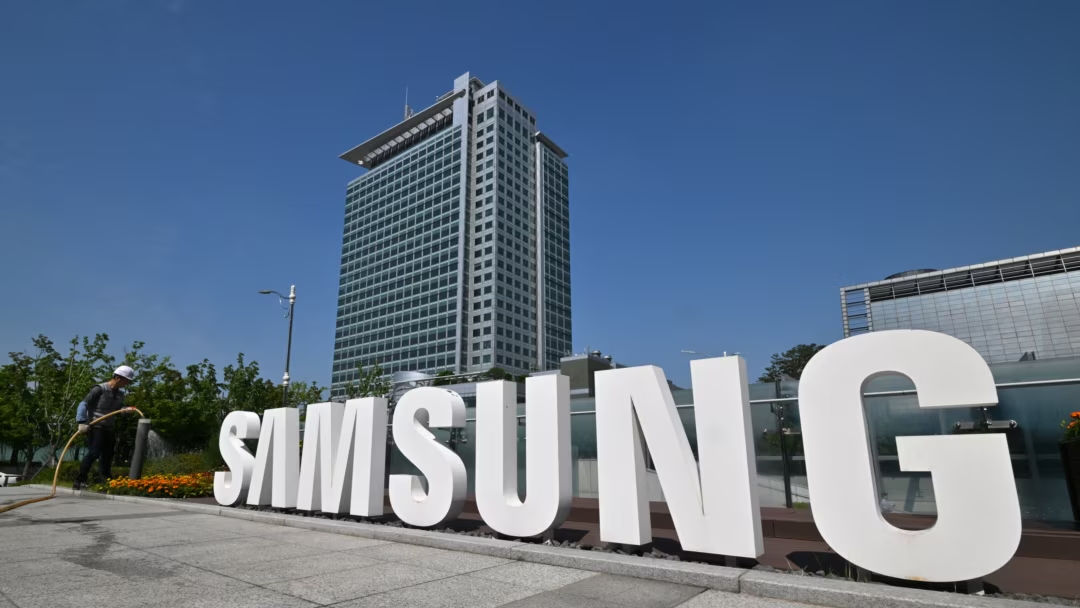Chinese tech giants and startups are stockpiling Samsung’s high-bandwidth memory chips in anticipation of U.S. export restrictions, sources say
One of the sources stated that the companies have increased their purchasing of semiconductors that are capable of artificial intelligence (AI) since early this year, which has contributed to China accounting for approximately 30% of Samsung’s (005930. KS) HBM chip revenue in the first half of 2024.
The actions demonstrate that China is preparing to maintain its technological objectives in the face of intensifying trade tensions with the United States and other Western nations.
Additionally, they demonstrate how the tensions affect the global semiconductor supply chain.
Reuters reported last week that U.S. authorities are preparing to introduce an export control package this month that will impose new restrictions on shipments for China’s semiconductor industry, citing sources.
Those sources also stated that the program is anticipated to establish parameters for restricting access to high-bandwidth memory chips.
The U.S. Department of Commerce declined to comment. Still, it had previously stated that it is constantly evaluating the changing threat environment and updating export controls to protect U.S. national security and safeguard our technological ecosystem.”
Reuters could not ascertain the specifics of the proposed HBM restrictions and their potential impact on China.
HBM circuits are essential components in developing advanced processors, such as Nvidia’s (NVDA.O), which are capable of generating AI work. Opens a new tab for graphics processing units.
Samsung, SK Hynix (000660. KS), and Micron Technology (MU.O), all of which are situated in the United States, are the only three significant chipmakers that produce HBM chips.
According to sources knowledgeable about China’s interest in HBM, the HBM2E model has been the primary focus of semiconductor demand even though it is behind the most advanced version, HBM3E. The advanced model is in short supply due to global AI growth.
Nori Chiou, investment director at Singapore-based White Oak Capital Partners, stated China’s Shina’s demanSamsung’ssung’s HBM has reached an unprecedented level because its domestic technology development has not yet reached its full potential.
This is because American AI companies have fully reserved manufacturers’urers’ capacities.
Businesses, including satellite manufacturers and technology companies like Tencent (0700. HK), have been purchasing the stockpiled HBM processors in China despite the difficulty of estimating their volume or value, according to the sources.
According to one of the sources, Hawking, a semiconductor design startup, recently acquired HBM chips from Samsung.
Meanwhile, according to one of the sources, Huawei (HWT.UL) has been employing Samsung HBM2E semiconductors to manufacture its advanced Ascend AI processor.
Samsung and SK Hynix declined to provide any commentary. Hawking, Huawei, Baidu, and Tencent did not respond to inquiries for comment. The sources declined to provide their names due to the matter’s sensitivity.
SAMSUNG VS HBM RIVALS
Reuters previously reported that Huawei and memory chipmaker CXMT have made some progress in the production of HBM, with a concentration on the development of HBM2 chips, which are three generations behind the HBM3E model.
However, the new U.S. regulation may affect those endeavors.
According to sources who were informed about the sales, Samsung may be more affected by restrictions on HBM sales to China than its primary competitors, who depend less on the Chinese market.
Micron has refrained from selling its HBM products to China since last year, while SK Hynix, whose main HBM customers include Nvidia, concentrates on producing advanced HBM chips, according to the source.
SK Hynix announced earlier this year that it is adjusting production to increase the output of the company’s HBM processors, which were sold out for the current year and are nearly sold out for 2025.



